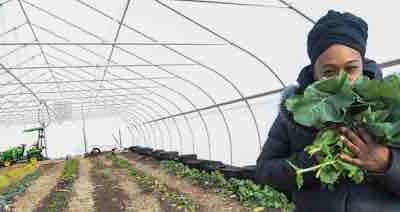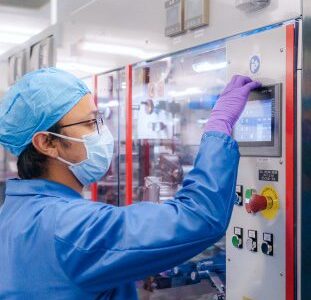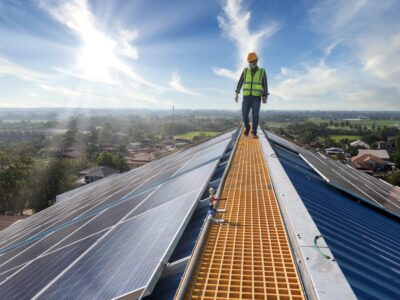New York City is no stranger to ambitious real estate projects — especially Brooklyn, which has undergone massive changes in recent years. According to City Realty, as recently as 2011, the borough had only one building more than 500 feet tall. A decade later, that number had grown to more than 25 similar-sized buildings that were either completed, underway, or in the planning stages.
One of the more high-profile projects to break ground this year is 1 Java Street, an 834-unit residential development being built on Brooklyn’s Greenpoint waterfront. Much of the attention has focused on features to lower the development’s carbon footprint — including an underground geothermal heat-pump system.
Once completed, the project will be New York State’s largest geothermal residential building and one of the biggest in the country, according to a press release.
It is being developed through a partnership between a pair of Australian firms: real estate group Lendlease and superannuation fund Aware Super.
Construction started in April 2023 and is expected to be completed in 2025. Thirty percent of the units will be affordable under the Affordable New York Housing Program. According to a press release, in addition to housing, 1 Java Street will feature “a new public waterfront esplanade with a living shoreline and direct access to the India Street Pier.” It will also feature 13,000 square feet of retail space.
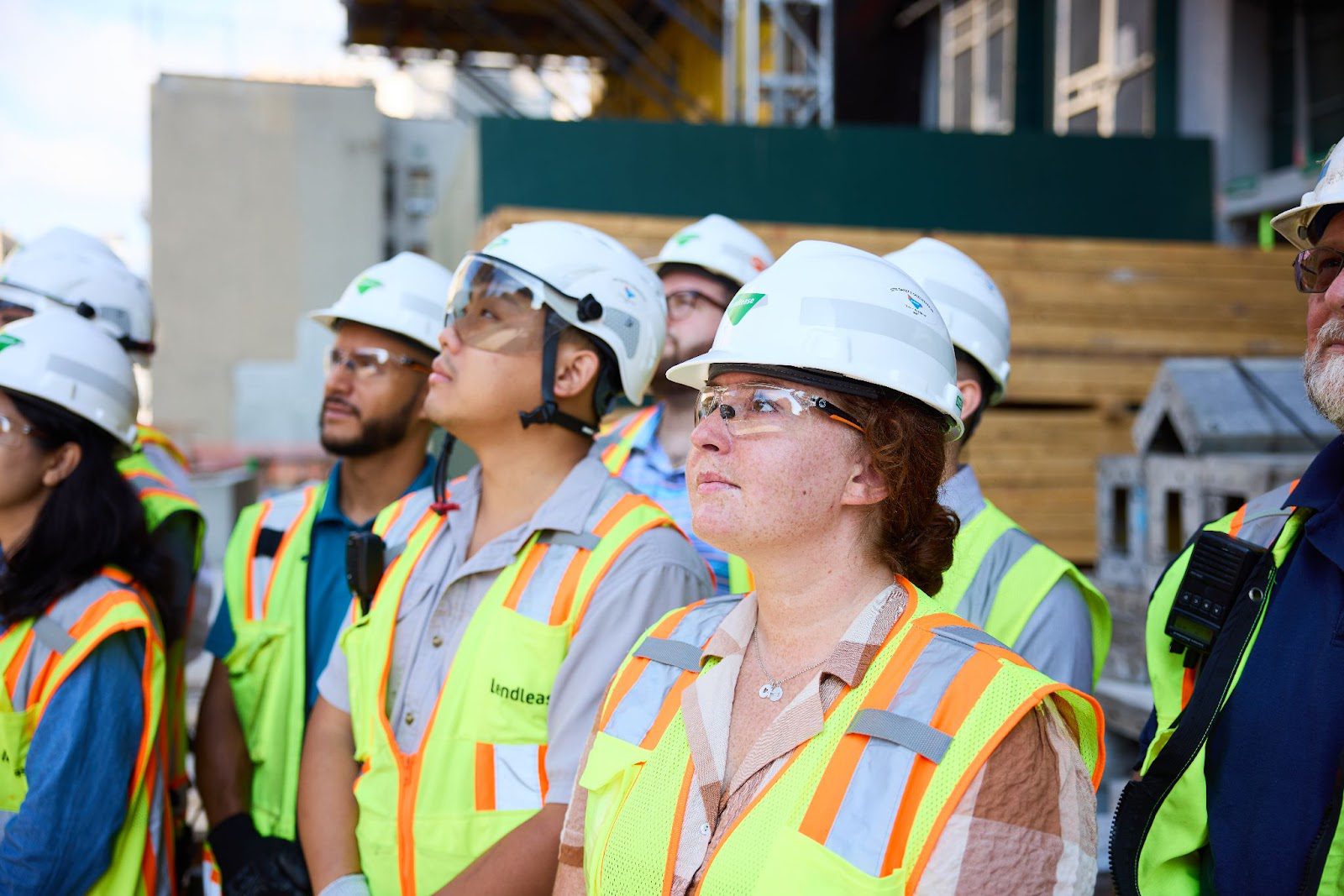
Photo Courtesy Lendlease
But the main reason the project has drawn headlines is because of its focus on sustainability. The property will be heated by more than 300 holes below the ground, each measuring about four inches across and 499 feet deep. According to Bloomberg, the holes will serve as the “heart of a geothermal heat-pump system that is expected to reduce carbon emissions by 53% over a comparable building using conventional heating and cooling systems.”
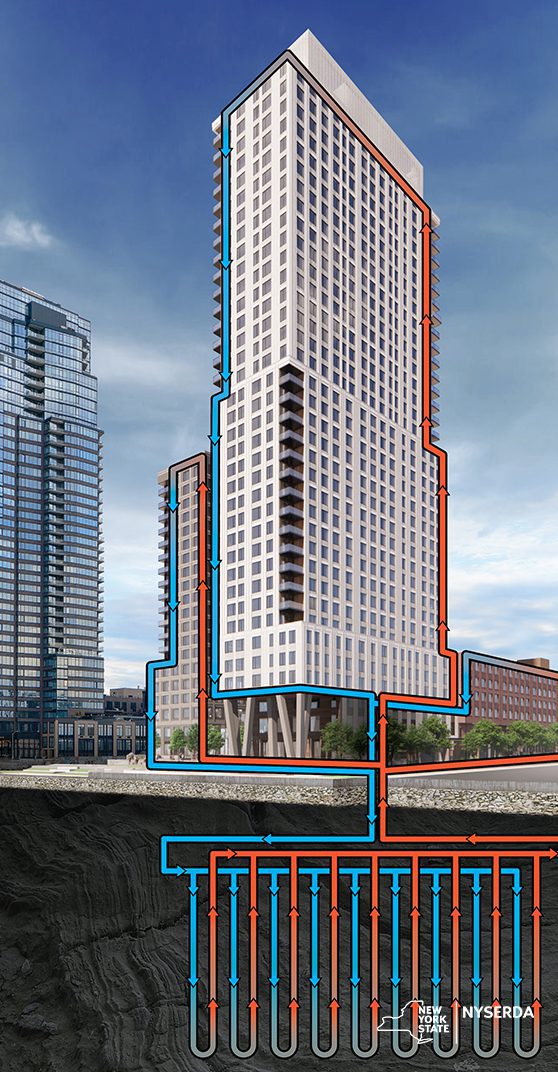
Photo Courtesy NYSERDA
The project was partly funded through a $4 million grant from the New York State Energy Research and Development Authority (NYSERDA).
Geothermal heat pumps are not a new technology. Energy.gov states they’ve been around since the 1940s and use the “relatively constant temperature of the earth” to heat, cool, and provide hot water to buildings. This method differs from most heating/cooling systems, using outside air.
The geothermal system isn’t the development’s only sustainability feature, either. The Lendlease website states 1 Java Street “will target a range of initiatives, including LEED Gold certification, WEDG Waterfront Certification, Fitwel Certification, and ENERGY STAR Certification.”
“Lendlease is bringing the full weight of its investment management, development, and construction expertise to this integrated project, which demonstrates our global commitment to creating inclusive communities on prominent sites with unrealized potential,” Claire Johnston, Lendlease USA CEO, said in a statement. “1 Java Street pushes the boundaries of what is possible for socially and environmentally sustainable living in New York.”
The project is also part of a broader effort by Leandlease to eventually eliminate all emissions from its global operations. “We don’t want to use natural gas anymore in any of our buildings,” Sara Neff, Lendlease’s head of sustainability for the Americas, told Bloomberg.
In terms of sheer scale, it’s a very ambitious project, even by the standards of the Big Apple. The development will feature five interconnected buildings on a full city block. These include the following:
- Two towers of 37 stories and 20 stories tall, respectively, will face the East River
- A six-story building facing West Street
- A 10-story building that will face India Street
- A six-story building facing Java Street
“It will be a beacon for Brooklyn’s waterfront and future decarbonization initiatives and is another wonderful example of how we can responsibly generate strong returns for our global property portfolio,” said Alek Mislev, Aware Super’s senior portfolio manager.


